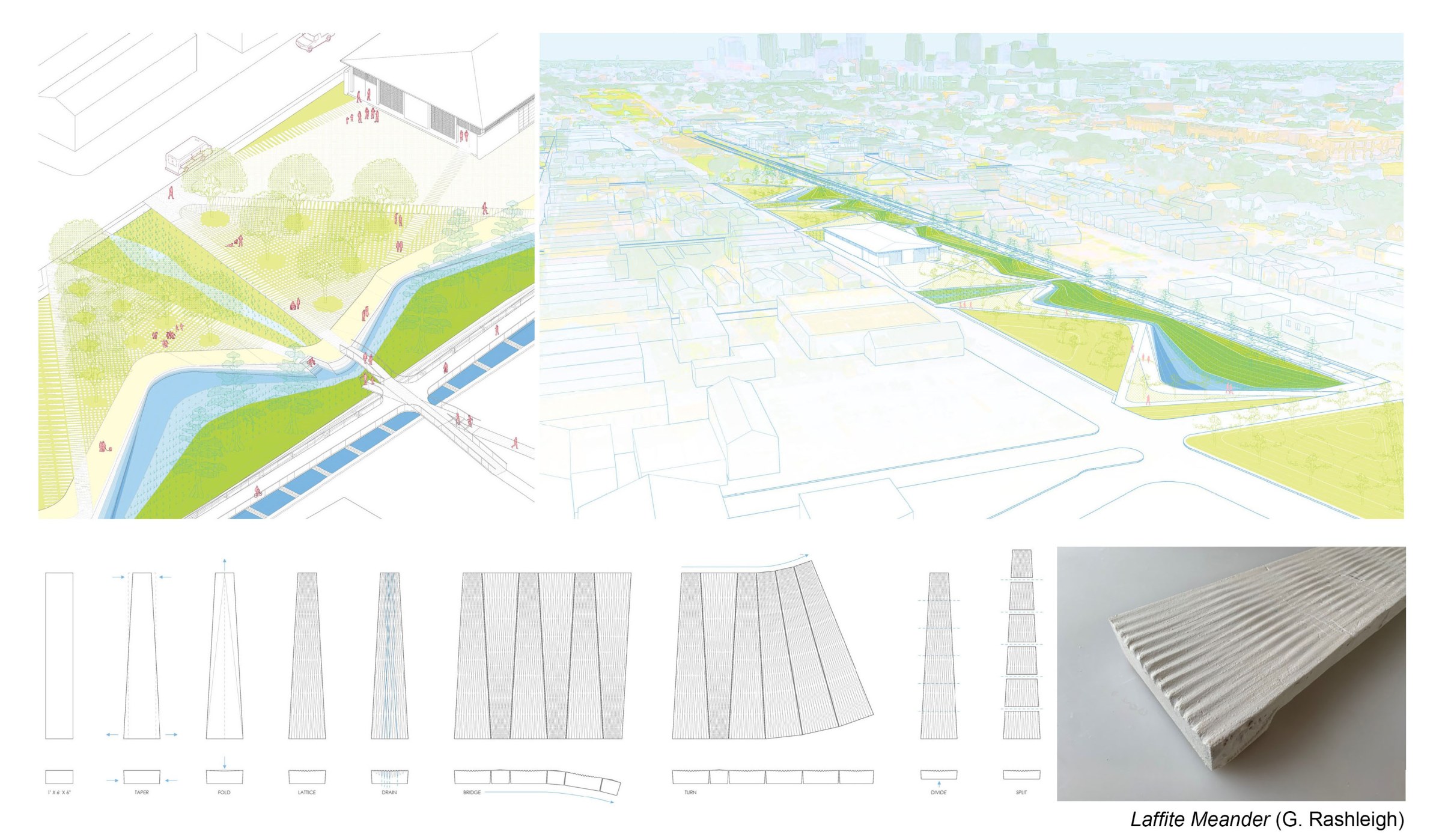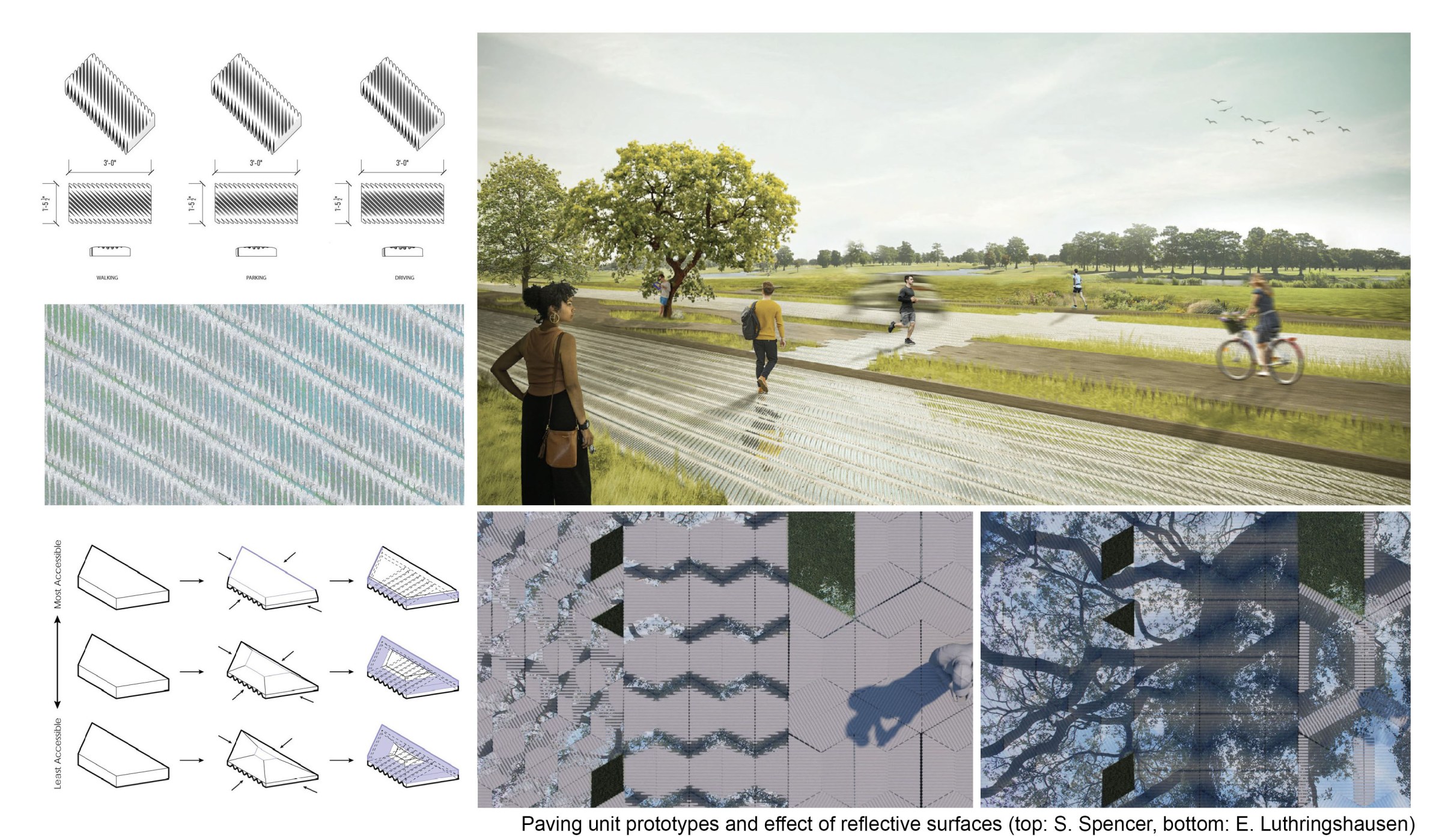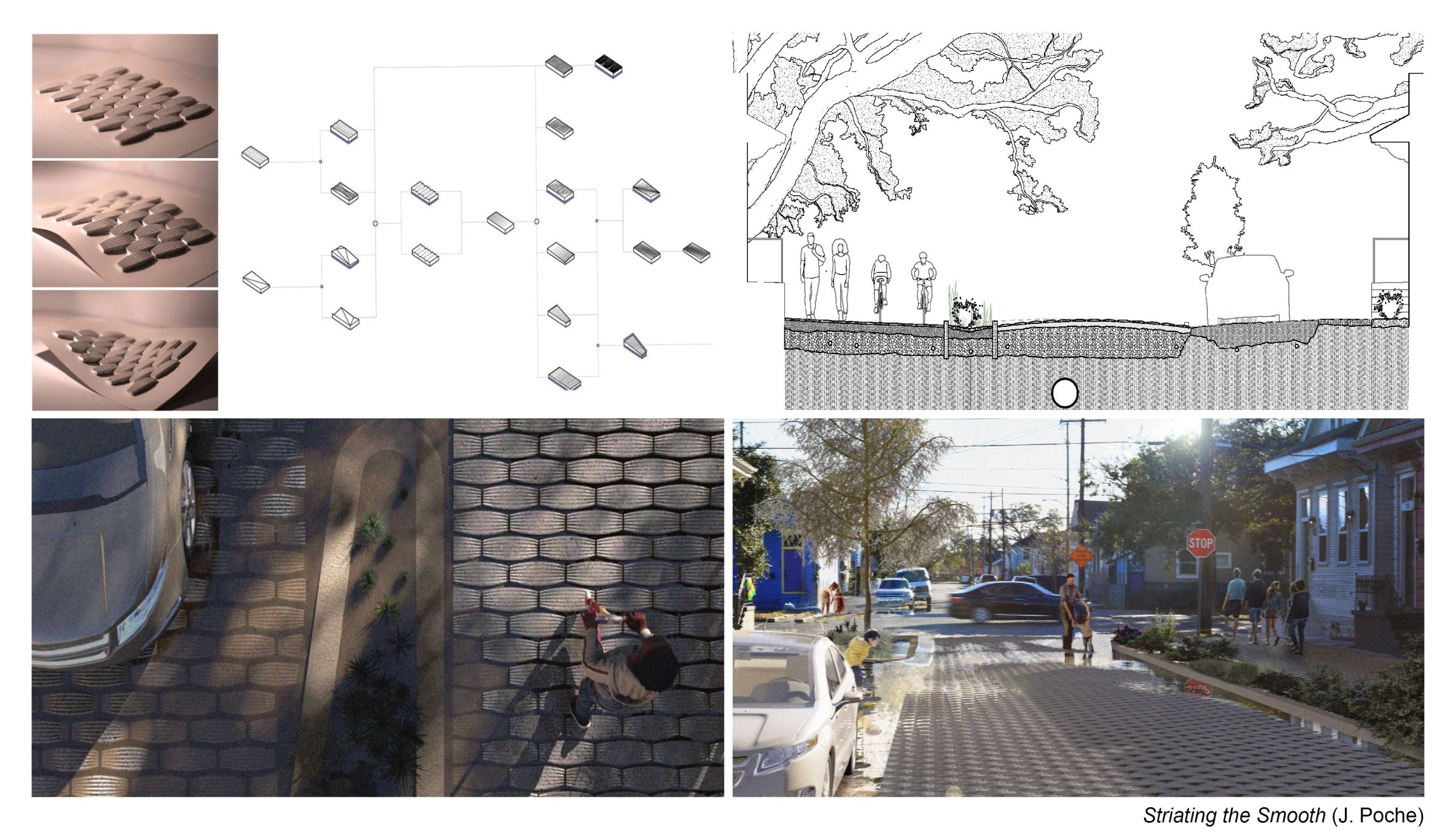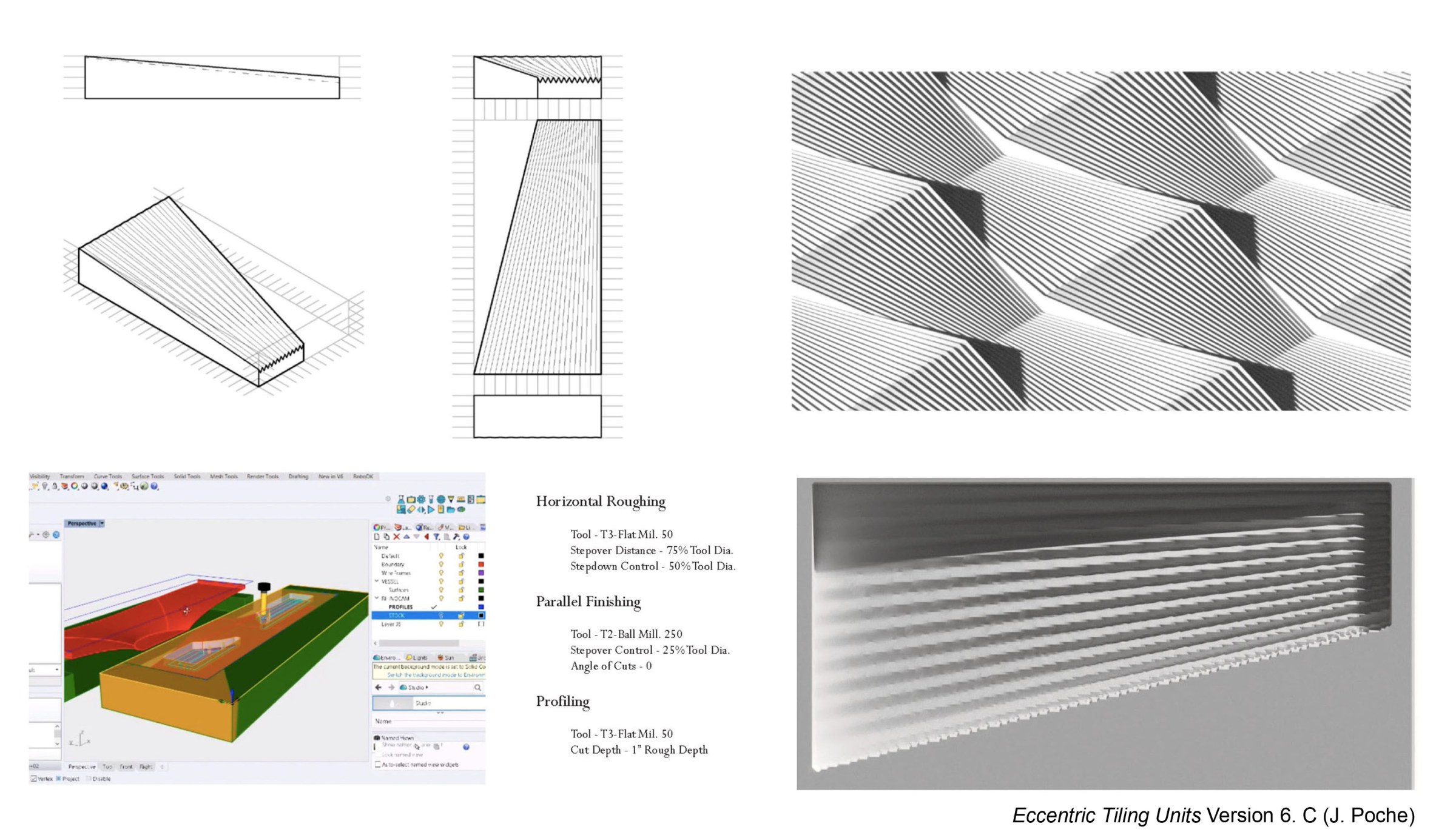Thesis Highlights
Resilience Reinforced

Faculty: Kentaro Tsubaki, Favrot Associate Professor, and Charles Jones, Visiting Assistant Professor
New Orleans occupies the Mississippi Delta, a complex ecological system formed by soil deposits interacting with the river and the Gulf. Finding stability is a constant challenge in this soft, fluid ground. With a thoughtful application, modular precast concrete paving systems can reestablish a symbiotic relationship between the built environment and landscape as both infrastructure and public amenity.
The design and fabrication exploration conducted by the research studio funded by the PCI-Foundation Grant, addresses the complex relationships amongst the nature of public spaces, urban infrastructure, construction systems, ecological systems, and water, the most ubiquitous and nurturing yet powerful and destructive resource in New Orleans at three distinct scales. At the component and street scale, we aim to slow down the storm runoff by momentarily storing it where it falls. A discontinuous, textured, permeable surface enhances pedestrian mobility by increasing accessible surface during and immediately after the rain, channels and detains water to promote plants and tree growth, filter pollutants, and spatially amplify the experience, dynamically capturing the surrounding landscape through its reflective surfaces. On an urban scale, we aim to detain overflow from the drainage system during peak storm intensity to maintain the demand at capacity.
The studio addresses the paradigm shift in urban stormwater management concerning climate change. The outdated engineering solution is to increase the drainage system’s capacity by enlarging the conduits and pumps to accommodate the increase in peak demand. Instead, we systematically speculate a multi-faceted scenario to delay excess stormwater from entering the drainage system, reducing the peak demand over time. An underutilized post-industrial urban space is revitalized as an amenity for the community and a water management infrastructure for the city. Its ground surface is strategically sculpted to detain water and foster accessibility and communal activities. Furthermore, the reintroduction of water as a surface quality strengthens the interlinkages between social and ecological systems by improving our understanding of the natural characteristics of the deltaic landscape.
WORK


